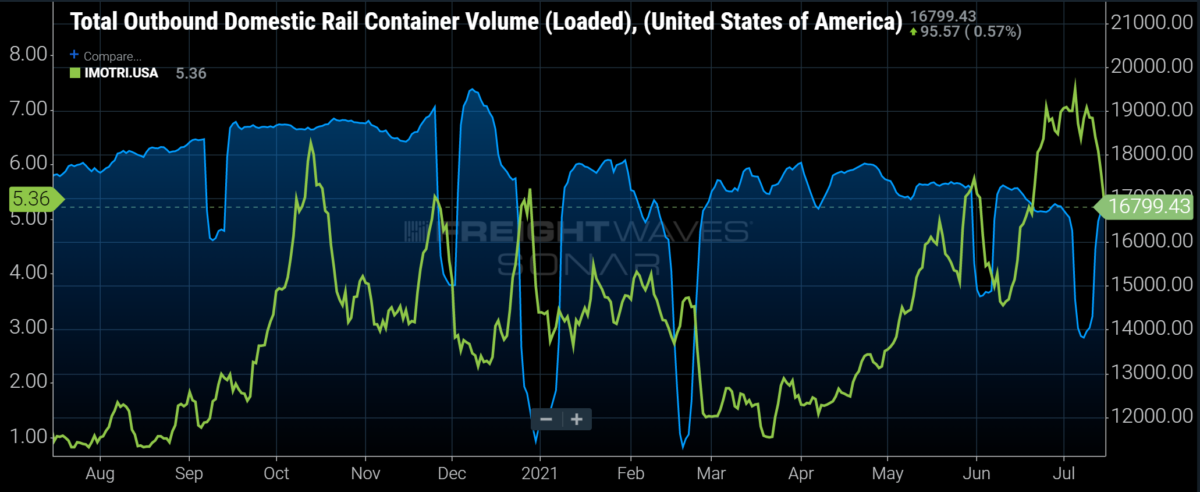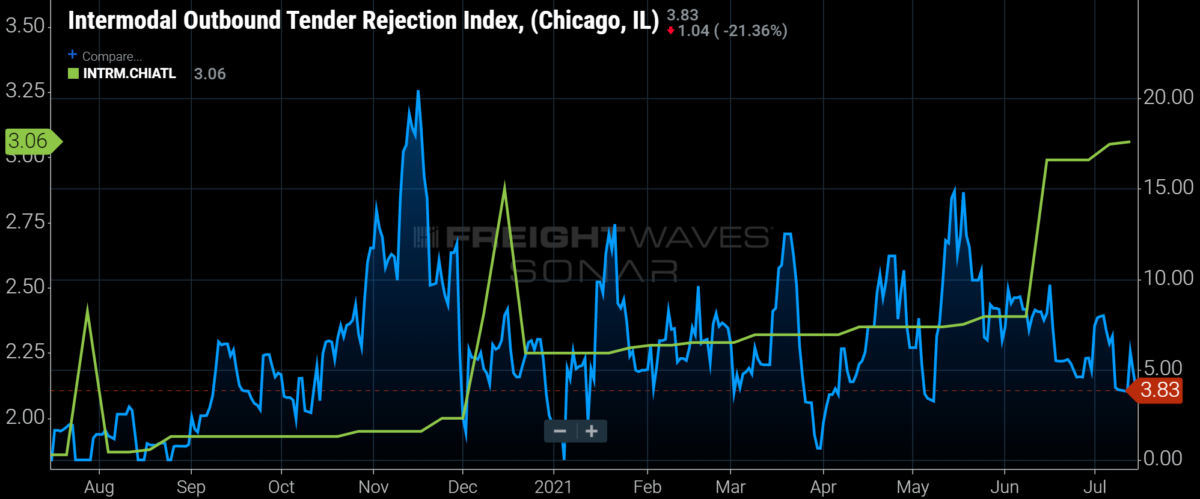Facing difficult comps versus one year ago, loaded domestic intermodal container volume is now down on 10 of the 11 densest domestic intermodal lanes that originate in the U.S (see chart at top of file). Volume declines are not just an issue of difficult comps, they are also being driven by congestion and service issues that are delaying some intermodal shipments and sending other intermodal volume to the highway.
In the past week, we have heard shippers complain about: 1) being allocated only a few container slots on intermodal trains each day, 2) shipment delays and poor on-time performance, 3) not being allowed to get containers in-gated during regular hours, 4) the current price spread between intermodal and truckload, which is tiny when accessorials and other surcharges are included, and 5) difficulty in securing containers.

In addition, in an effort to improve intermodal service, Union Pacific temporarily suspended service into Chicago from a number of West Coast cities. It’s not clear when these congestion issues will subside, but for the time being, it appears that congestion and service issues are pushing a portion of the domestic intermodal volume to the highway.

Intermodal spot rate outbound from Chicago has risen amid the Chicago congestion. Intermodal tender rejection rates do not tell the whole story because some shippers have said that most IMCs are on “auto accept” of intermodal tenders. But congestion issues have caused the CPG shippers to take back their boxes and put them on the highway because of the time/service issues in intermodal.











